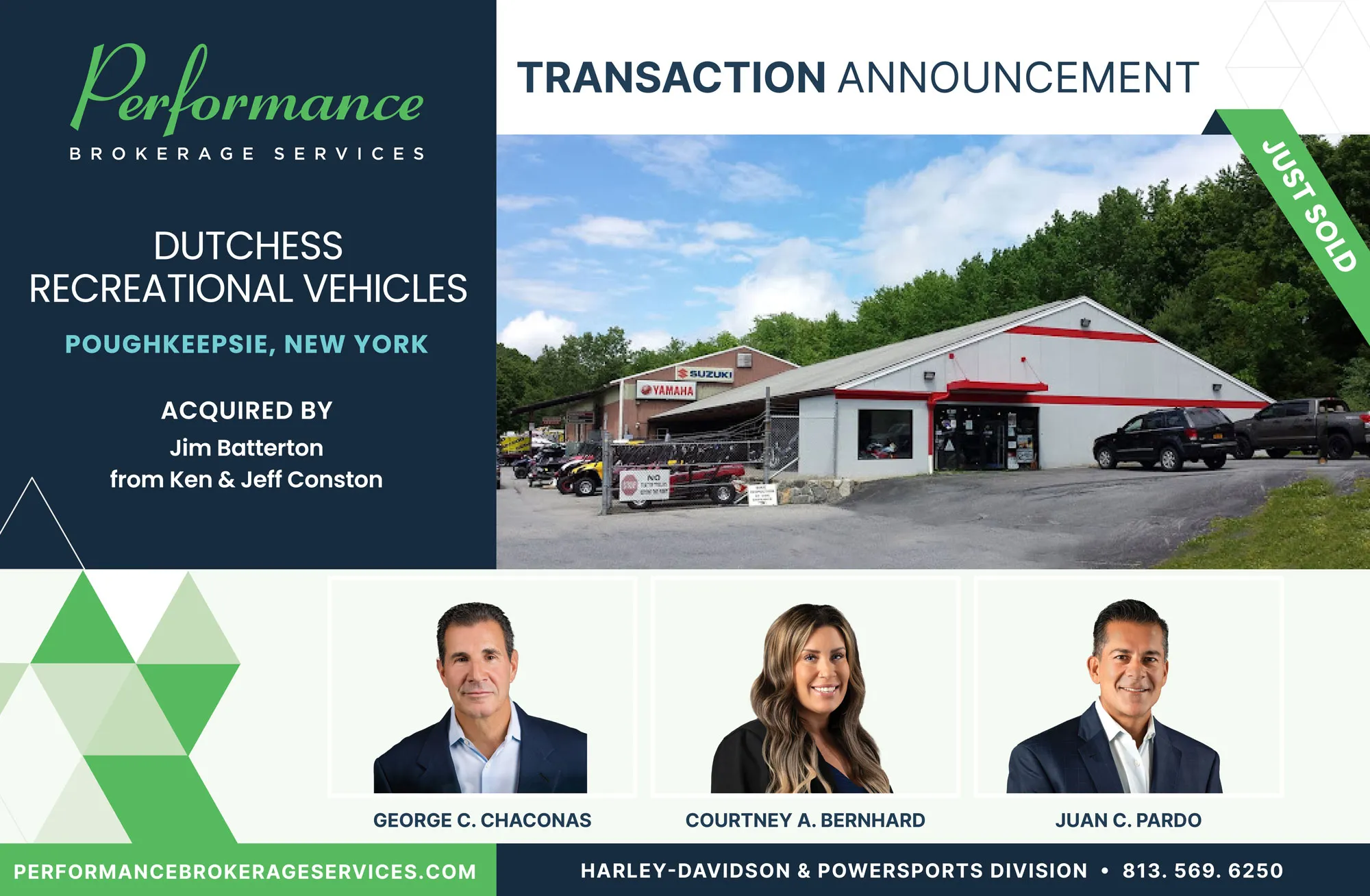Use benchmarking to improve your dealership
If your dealership’s fiscal year coincides with the calendar year, you’re probably about halfway through 2010 as you read this. Now is the perfect time to compare where you are with where you want (or ought) to be.
Maybe a midyear profitability checkup is something you do every year. Or perhaps it’s something you always mean to do but never get around to. Whatever the case, you can add value to the process by incorporating the practice of benchmarking into your checkup.
Why do it?
Simply put, benchmarking means comparing your dealership’s performance with that of other, comparable operations. It can point out areas in which you are doing well and alert you to areas where you’re lagging behind competitors.
Now the former — affirmation that you have turned in a world-class performance — is wonderful. But the latter circumstance, learning of your dealership’s shortcomings, is actually more useful. This discovery can lead to improvements in your dealership’s efficiency and profitability.
What is measured?
From staffing levels to expense management to revenue streams to return on investment, virtually any aspect of your dealership’s performance can be measured and, therefore, benchmarked. All it takes is the appropriate information and some means to evaluate that data — usually a spreadsheet.
Many benchmarks are related to revenue or profits. For example, take the total net profit generated by the service department and divide that sum by the number of technicians you employ to see average net profit per technician.
Comparing that figure to those of other dealerships in your region will tell you whether you may be under using your technicians. You can develop similar ratios for sales, parts inventory and even your overall employment levels.
You can also use benchmarking to assess the effectiveness of your expense controls. Wouldn’t it be valuable to learn where your dealership stands compared with others when it comes to advertising expenditures per sale? How much of your gross profit on sales drops to the bottom line compared with your competitors’?
Where is the data?
To benchmark successfully, you need good data about your dealership and those to which you’re comparing it. Regarding your internal info, your CPA can help you not only measure the pertinent data, but also develop the ratios needed for benchmarking.
As far as locating the external data to undertake your benchmarking efforts, your CPA can likely help you here, too. Factory reps and dealership groups or associations may also be able to provide benchmarking info. In fact, larger dealer groups can make similar comparisons on a store-by-store basis within the organization.
What are the risks?
Because competitors in close proximity to your dealership may, understandably, be less than willing to divulge much information, you may have to rely on data from similar operations in distant markets. If you do so, be sure to consider the inevitable differences.
For instance, media costs in one area may be markedly different from those in another region. Thus, benchmarking the advertising costs of each sale could be difficult under these circumstances. Rent, the cost of labor, utilities and insurance premiums are just some of the many other areas in which costs can differ significantly based on market location.
Comparing your numbers with dissimilar dealers’ also has risks. Can you really compare the results from a dealership that sells a mass-market brand to those from one that caters to the premium luxury market? As with any powerful management tool, benchmarking has to be used carefully.
If you do fall well short of the performance of one or more competitors, don’t panic. You may not match the efficiency of another dealership because you have, for example, hired more service advisors.
So look at other areas: You could lead the fray in customer satisfaction — and repeat business — as a result of this added effort. Or your marketing costs may be higher for each unit you sell, but that may allow you to impose a pricing premium that produces an additional profit on each sale.
Who can help?
Of course, generating benchmarking information is just the first step. Once you’ve got the data, you need to analyze it — and act on it. Here, again, your CPA can be of great help. As mentioned, businesses generally develop spreadsheets that organize benchmarking information into columns for easy comparison. Your accountant can help you create such a tool and suggest trends you might draw from it.
From there, the power lies in your hands. As mentioned, right here and now — at the midyear point — you have a great opportunity to assess where your dealership stands and how it might ascend to higher ground. Take advantage!
Sidebar: Benchmarking vs. industry averages: Apples and oranges
When you benchmark, you compare your dealership’s financial performance with that of others in your field. But don’t confuse benchmarking with merely comparing your dealership’s performance with industry averages. If you do, you risk being lulled into complacency.
With industry averages, it’s often possible to score well above average in a wide range of categories, yet still fall well short of the best in each of these fields. Each shortfall suggests that you are abandoning dollars that could ultimately improve your profitability.
Thus, consider averages as being either the “best of the worst” or the “worst of the best.” No business leader has ever aspired to be average.
Frankeberger Vausher + Company, CPAs is a full service CPA firm whose partners have collectively served the dealership industry for over 35 years. We provide a full compendium of professional services including traditional taxation and financial statement preparation as well as strategic consulting for dealers in such areas as: Financial and Operating Controls, all activities for Buy/Sell transactions, valuation requirements, estate planning assistance as well as being Expert Witnesses in Litigation Matters. In addition, we provide expertise in Forensic, Fraud and Embezzlement situations as that need may unfortunately arise. Please contact Dennis Frankeberger at 909-597-1100 to discuss this article or any other dealership issue that may be of interest to you. Email address dennisf@FVCPAS.com


